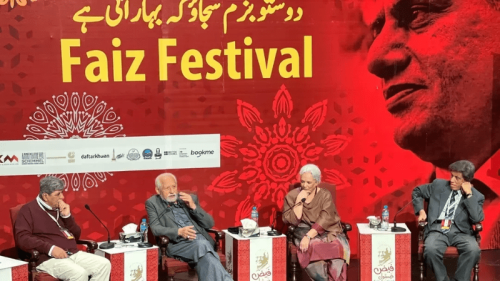PESHAWAR, Dec 7: The Peshawar High Court on Tuesday upheld the plea of 28 petitioners that the gas consumers of Khyber Pakhtunkhwa enjoyed the first right over the gas produced in their province and directed the Sui Northern Gas Pipelines Ltd (SNGPL) to ensure uninterrupted supply of gas to the consumers of the province from the well-heads situated in the province.
“A look at Article 158 of the Constitution leaves no doubt that province in which well-head of natural gas is situated shall have precedence over other parts of Pakistan in meeting requirement from that well-head subject of course to the commitments and obligations as existed on commencing date,” said Chief Justice Ejaz Afzal Khan and Justice Mazhar Alam Miankhel in their ruling.
The petitions were filed by Sarhad Chamber of Commerce and Industry (SCCI), All Pakistan CNG Association and several industrial units requesting the court to declare that Khyber Pakhtunkhwa should be given precedence over other parts of Pakistan in meeting the requirements of natural gas from the well-heads situated in the province.
Advocates Athar Minallah, Yasir Khattak, Barrister Mudassir Amir, Atif Ali Khan and others appeared for the petitioners and contended that Article 158 provided in unambiguous and unequivocal terms that the province in which a well-head of natural gas was situated should have precedence over other parts of Pakistan in meeting the requirements from that well-head.
Mr Minallah argued that supply of gas to Khyber Pakhtunkhwa must be uninterrupted and placing any restriction over it was alien and extraneous to the said provision.
Referring to the policy decision of federal government, he spelt out a letter dated Sept 4, 2009, and contended that when it had been decided that supply of gas should be uninterrupted even in the three months of peak consumption in the area producing natural gas including province of Baluchistan, how could this province be treated differently.
A representative of the SNGPL informed the court that the present production of natural gas from well-heads in the province was 340 million cubic feet per day (MMCFD) whereas the consumption in Khyber Pakhtunkhwa was 227 MMCF.
When the bench inquired about the repercussions, if any, in case of uninterrupted supply of gas to the province, the representative said that presently Punjabprovince was bearing the brunt of load-management. Presently two-day loadshedding of natural gas had been carried out in a week in Punjab, he added.
The deputy attorney general, Mohammad Iqbal Mohmand, appearing for the federation, contended when Article 158 of the Constitution was read in light of provision contained in article 172 (3) the prayer of petitioner could not be entertained as according to the said article mineral oil and natural gas within the province shall vests jointly and KP has first right over its gas equally in that province and the federal government.
Counsel of SNGPL, Mohammad Shoaib Jally, argued that the dispute before the court in essence and substance was dispute between province and federation, therefore the court would have no jurisdiction to give any adjudication and that it could be urged before the Supreme Court under Article 184 of the Constitution.
The deputy advocate general, Barrister Waqar, representing the provincial government, supported the petitioners’ contentions and contended that no interpretation or agreement seeking any deviation from the constitutional provisions could be said to be legal.
“Article 172 (3) provides that mineral oil and natural gas within the province shall rest jointly and equally in that province and federal government but this article does not say any where that the requirement of the province in which well-head of natural gas is situated shall not have precedence over other parts in meeting requirement from well-head,” the bench observed.
About the agreements with the SNGPL by the petitioners, the bench ruled: “Granted that petitioners had entered into agreement with SNGPL wherein they themselves agreed for supply of gas for nine months but these agreements being against mandate of the Constitution shall have no force altogether needless to say only those agreement are binding on parties which are in accordance with law of the land in general and provisions of the constitution in particular.”
The bench overruled objection raised by SNGPL that the dispute could only be challenged before the Supreme Court under Article 184(1) and observed: “This argument has left us unmoved altogether as we have nothing to do with the federation as the dispute before us if seen in its proper perspective is regarding enforcement contained in article 158 of Constitution.
Reference to Article 172 (3) in this context would be out of place.”














































Dear visitor, the comments section is undergoing an overhaul and will return soon.